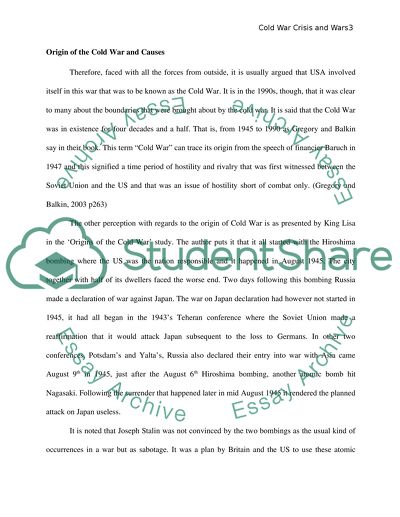Cite this document
(“Cold war crisis and wars Term Paper Example | Topics and Well Written Essays - 2000 words”, n.d.)
Retrieved from https://studentshare.org/environmental-studies/1417055-cold-war-crisis-and-wars
Retrieved from https://studentshare.org/environmental-studies/1417055-cold-war-crisis-and-wars
(Cold War Crisis and Wars Term Paper Example | Topics and Well Written Essays - 2000 Words)
https://studentshare.org/environmental-studies/1417055-cold-war-crisis-and-wars.
https://studentshare.org/environmental-studies/1417055-cold-war-crisis-and-wars.
“Cold War Crisis and Wars Term Paper Example | Topics and Well Written Essays - 2000 Words”, n.d. https://studentshare.org/environmental-studies/1417055-cold-war-crisis-and-wars.


